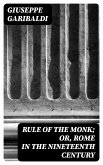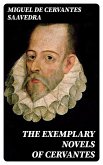In 'Numantia,' Miguel de Cervantes Saavedra crafts a poignant exploration of themes such as valor, sacrifice, and the indomitable spirit of a besieged town. Written during the early 17th century, the play serves as a dramatic portrayal of the ancient Celtiberian city of Numantia, showcasing Cervantes' mastery of classical tragedy infused with a uniquely Spanish sensibility. Through rich, evocative dialogue and poignant characterizations, the narrative unfolds the struggles of a people confronting impending doom with steadfast courage, reflecting the socio-political turbulence of Cervantes' own time. The play stands as an emblem of national pride and resilience against adversity, echoing the Spanish desire for identity during the decline of the Habsburg Empire. Cervantes, best known for his seminal novel 'Don Quixote,' was also deeply influenced by the historical and cultural intricacies of Spain. His life experiences - including captivity and poverty - inform the thematic depth of 'Numantia.' These experiences allowed him to empathize profoundly with human suffering, enabling him to depict the valor and tragedy of his characters with emotional authenticity. In this play, Cervantes taps into historical narratives to explore universal themes of honor and despair. 'Numantia' is a must-read for those interested in the interplay of history and literature, offering insights into the human condition through the lens of Spanish culture. Cervantes' raw and emotive language makes the struggles of his characters resonate even today, making this work not only a historical document but also a timeless reflection on resilience. Scholars and casual readers alike will find value in its exploration of honor, duty, and the complexities of warfare, inviting reflections on the nature of heroism in the face of inevitable fate.
Dieser Download kann aus rechtlichen Gründen nur mit Rechnungsadresse in A, B, BG, CY, CZ, D, DK, EW, E, FIN, F, GR, H, IRL, I, LT, L, LR, M, NL, PL, P, R, S, SLO, SK ausgeliefert werden.




![Truth [Vérité] (eBook, ePUB) Truth [Vérité] (eBook, ePUB)](https://bilder.buecher.de/produkte/65/65836/65836485m.jpg)




